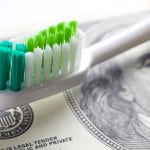
(November 11, 2013): TSBDE Update - The Texas Legislature first provided for licensure of dentists in 1897, whereby district judges were empowered to appoint a Board for their districts consisting of three practicing dentists living in the district. In 1905, Senate Bill 84 created the Texas State Board of Dental Examiners (TSBDE or Board). The Board consisted of six practicing dentists to serve the entire state. Between 1905 and the present, various amendments to the Dental Practice Act have been enacted.
Today, the Board consists of 15 members appointed by the Governor. The stated mission of the Board is to safeguard the dental health of Texas by developing and maintain program to:
- Ensure that only qualified persons are licensed to provide dental care; and
- Ensure that violators of laws and rules regulating dentistry are sanctioned as appropriate.
The TSBDE is divided into five program functions/divisions: Executive; Administration; Licensing; Enforcement; and Legal. Each division is closely related to and depends on ready and efficient access to information from the others to assure that functions are carried out in a manner consistent with statutory requirements to ensure the dental health and safety of the public. Information about program services is shared among the divisions of the TSBDE.
I. Introduction -- Sanctions Imposed by the TSBDE:
The TSBDE has the authority to sanction dentists for inappropriate conduct. Examples of such conduct include violations of the standard of care, impermissible delegation, dishonorable or unprofessional conduct and criminal offenses and the failure to use proper diligence in practice or the failure to safeguard patients against avoidable infections.
II. Alleged Violation -- Standard of Care Breaches:
Standard of care violations include:
- Practice below minimum standard with a risk of harm.
- Failure to advise patient before beginning treatment.
- Failure to make, maintain and keep adequate dental records.
- Misleading a patient as to the gravity, or lack thereof, of their dental needs.
- Failure to maintain appropriate life support training.
- Abandonment of patient.
- Failure to report patient death or injury requiring hospitalization.
- Act or omission that demonstrates level of incompetence such that the person should not practice without remediation and subsequent demonstration of competency.
- Negligence in treatment.
- Any intentional act or omission that risks or results in serious harm.
- Failure to properly document compliance with health and sanitation requirements.
- Office premises are not maintained in compliance with health and sanitation requirements.
- Barrier techniques, disinfection, or sterilization techniques do not comply with health and sanitation requirements.
- Failure to document controlled substance inventories or prescription records.
- Failure to use reasonable diligence in preventing unauthorized persons from utilizing DEA or DPS permit privileges.
Other types of standard of care violations include a situation where the Licensee is negligent in performing dental services and that negligence causes injury or damage to a dental patient and when the Licensee is physically or mentally incapable of practicing in a manner that is safe for the person’s dental patients.
Another type of violation is impermissible delegation. Impermissible delegation is when the Licensee holds a dental license and employs, permits, or has permitted a person not licensed to practice dentistry to practice dentistry in an office of the dentist that is under the dentist’s control or management.
III. Alleged Violation -- Dishonorable Conduct:
If a Licensee practices dentistry or dental hygiene in a manner that constitutes dishonorable conduct the activity will violate the Texas Code. These violations include:
- Isolated dishonorable conduct resulting in no adverse patient effects.
- Repeated acts of dishonorable conduct which impairs a person’s ability to treat a patient according to the standard of care.
- Dispensing, administering, prescribing, or distributing drugs for a non-dental purpose.
- Failure to meet duty of fair dealing in advising, treating, or billing a patient.
- Diagnosis of dental disease, prescription of medication, or performance of impermissible acts by a dental hygienist.
- Practicing dental hygiene without required supervision.
- Sex or sexualized conduct with a patient.
- Financial exploitation or dishonorable conduct resulting in a material or financial loss to a patient.
IV. Alleged Violation -- Criminal Behavior:
The TSBDE considers criminal behavior to be highly relevant to an individual’s fitness to engage in the practice of dentistry and will institute disciplinary actions for such conduct. Relevant behavior can include:
- Criminal offenses relating to the regulation of dentists, dental hygienists, or dental assistants committed in the practice of or connected to dentistry, dental hygiene or dental assistance.
- Criminal offenses relating to the regulation of a plan to provide, arrange for, or reimburse any part of the cost of dental care services or the regulation of the business of insurance.
V. Alleged Violation -- Improper Drug Usage:
Furthermore, violations relating to chemical dependency or improper possession or distribution of drugs are also in the purview of the TSBDE’s sanctioning authority. Specifically a violation will be found where the Licensee is addicted to or habitually intemperate in the use of alcoholic beverages or drugs or has improperly obtained possessed, used or distributed habit-forming drugs or narcotics. Violations include:
- Misuse of drugs or alcohol without patient interaction and no risk of patient harm or adverse patient effects.
- Improperly distributing habit-forming drugs or narcotics.
- Prescribing or dispensing a controlled substance for a non-dental purpose.
- Prescribing or dispensing a controlled substance to a person who is not a dental patient, or to a patient without adequate diagnosis of the need for prescription.
- Misuse of drugs or alcohol with a risk of patient harm or adverse patient effects.
- Misuse of drugs or alcohol with a significant physical injury or death of a patient or a risk of significant physical injury or death.
VI. Alleged Violation -- Fraud or Misrepresentation:
The TSBDE considers fraud or misrepresentation a violation. Infractions involving fraud or misrepresentation include instances where a licensee obtains a license by fraud or misrepresentation or engages in deception or misrepresentation in soliciting or obtaining patronage. Specific violations include:
- Failure to honestly and accurately provide information that may have affected the Board’s determination of whether to grant or renew a license.
- Making an intentional misrepresentation of previous licensure, education, or professional character, including failure to disclose criminal convictions.
- Engaging in false advertising.
- Creating unjustified expectation.
- Engaging in false, misleading or deceptive referral schemes.
- Failing to comply with requirements relating to professional signs.
- Failure to list at least one dentist practicing under a trade name in an advertisement.
- Falsely advertising as a specialist in one of the ADA recognized specialties or advertising as a specialist in an area not recognized by the ADA.
VII. Alleged Violation -- Any Law Relating to the Regulation of Dentists or Dental Hygienists:
A violation of any law relating to the regulation of dentists or dental hygienists is also considered a violation of the Dental Practice Act. This occurs when a Licensee violates or refuses to comply with a law relating to the regulation of dentists or dental hygienists. Examples include:
- Isolated failure to make, maintain and keep adequate dental records not resulting in patient harm.
- Failure to notify patients that complaints concerning dental services can be directed to the Board.
- Failure to post names of, degrees received by, and schools attended by each dentist practicing in office. Failure to properly exclude names of dentists not practicing in office.
- Failure to place identifying mark on a removable prosthetic device.
- Failure to notify the Board of maintenance of records agreement.
- Failure to make, maintain and keep adequate dental records resulting in potential for patient harm.
- Failure to obtain written, signed informed consent.
- Failure to provide full dental records to the Board upon request.
- Failure to maintain an appropriate permit for a mobile dental facility.
- Perform treatment outside licensee’s scope of practice not resulting in patient harm.
- Prescription of controlled substance while DPS or DEA permit is expired.
- Failure to make, maintain and keep adequate dental records resulting in actual patient harm.
- Violation of stipulation in a prior Board Order.
- Perform treatment outside licensee’s scope of practice resulting in patient harm or potential for patient harm.
- Prescription of controlled substance without DPS or DEA permit.
VIII. Conclusion:
In recent years, the TSBDE has been particularly active. As the number of complaints against dentists has increased, the number of disciplinary actions has also grown. Notably, many of the complaints now handled by the TSBDE are collateral referrals from state and / or federal law enforcement agencies. Are your dental practices fully compliant? Call the health lawyers at Liles Parker for assistance in responding to a Dental Board investigation or a Medicaid or private payor audit.

Robert W. Liles, J.D. serves as Managing Partner at Liles Parker, Attorneys & Counselors at Law. Robert represents dentists and dental practices around the country in State Dental Board investigations and in Medicaid and private payor audits of dental claims / dental services. For a free consultation, call Robert at: 1 (800) 475-1906.
